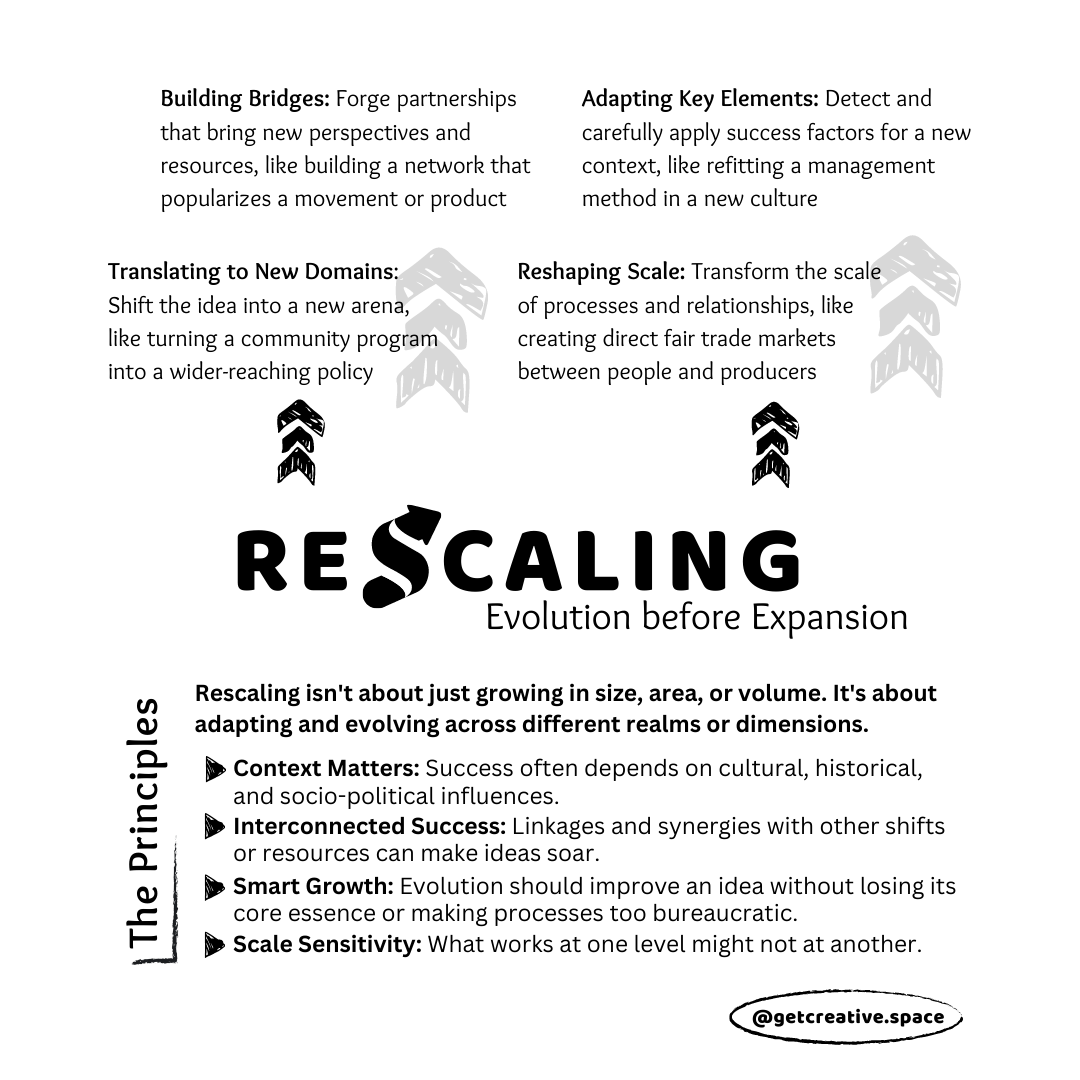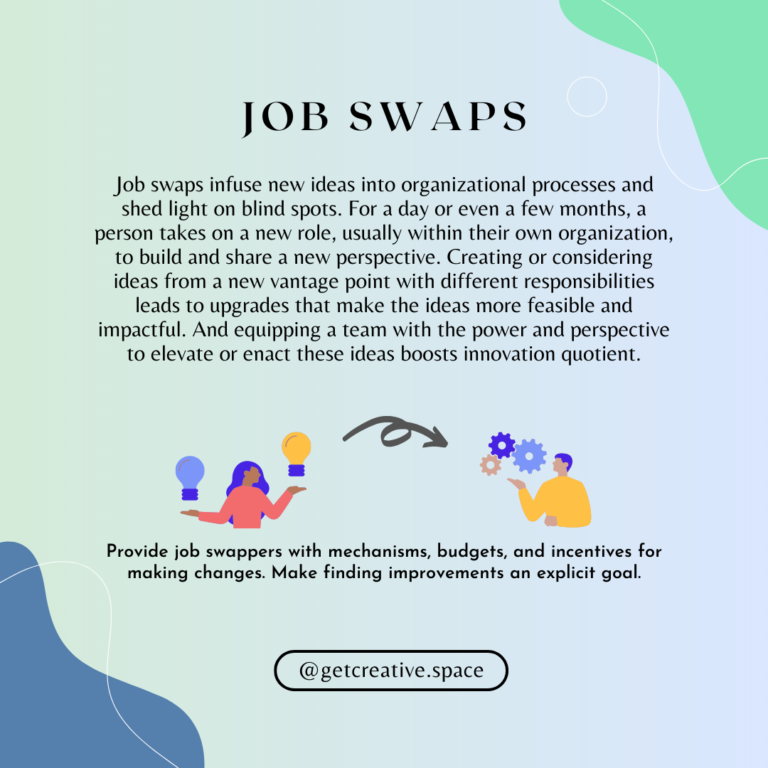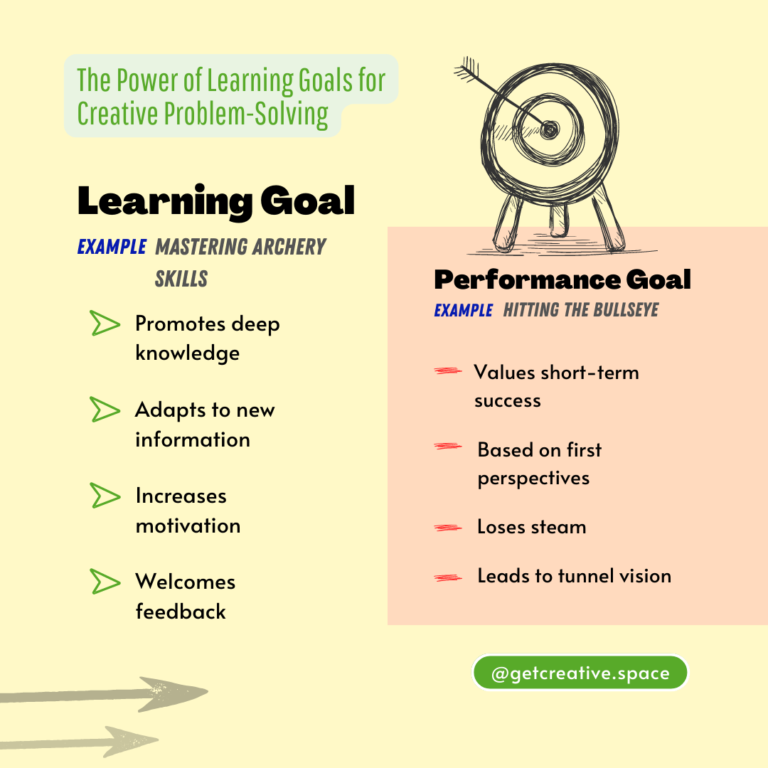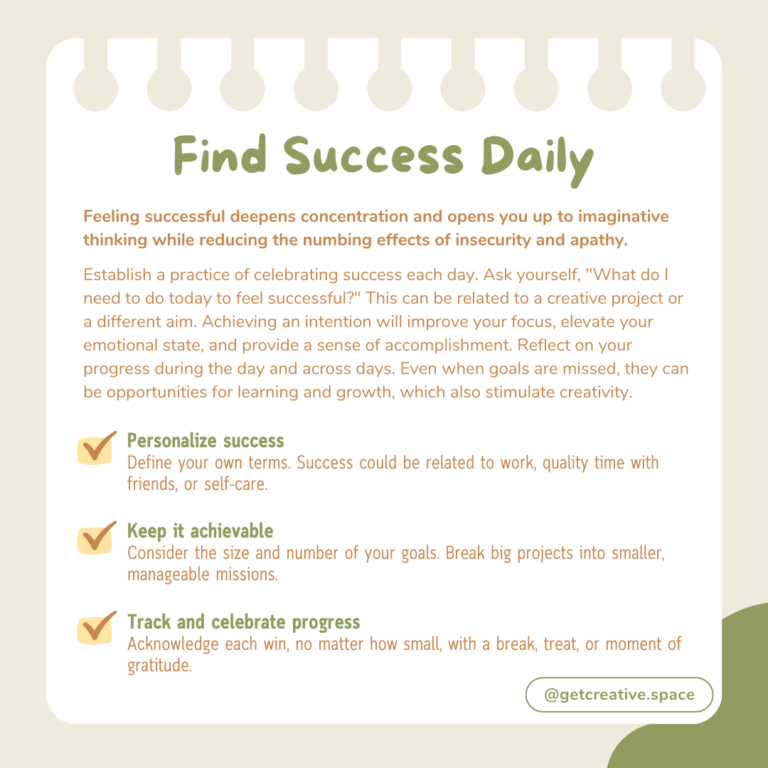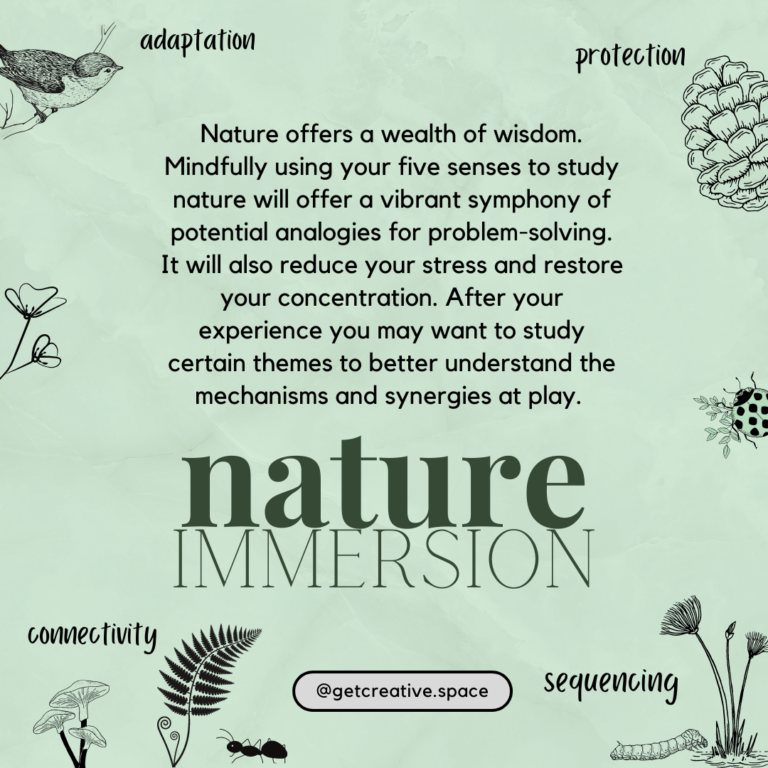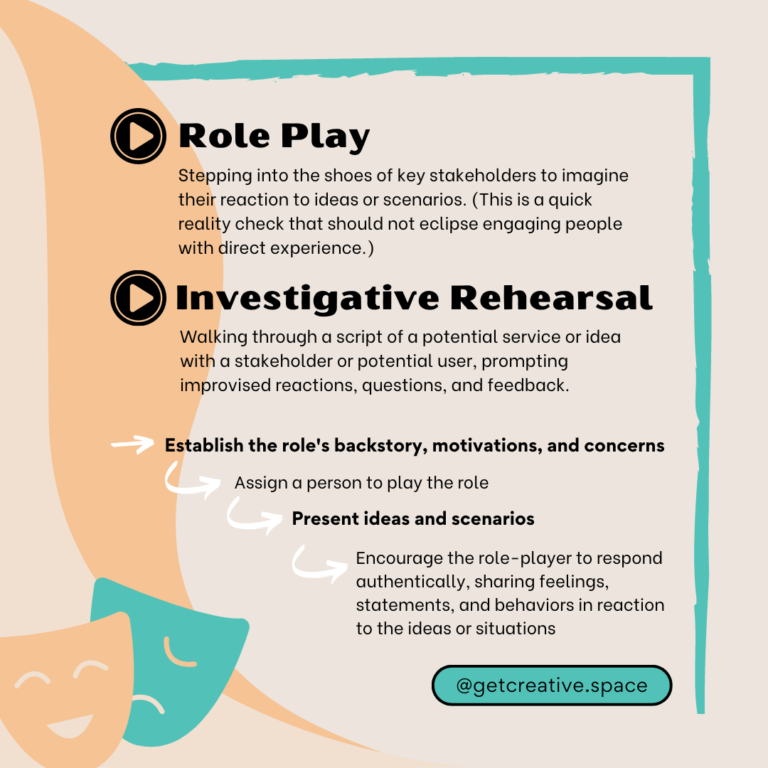Rescaling: Evolution before Expansion
Expanding the depth or breadth of what works can lead to great gains: reaching more people and maximizing efficiency. In social endeavors, this means elevating societal value, while businesses might see improved returns on investment. But “copy and paste” up-scaling misses that successful or promising ideas exist in a nuanced setting of expertise, relationships, and culture.
Alternatively, the concept of “rescaling” acknowledges that scaling isn’t merely about growing in size or volume. It’s about adapting and evolving across different realms or dimensions. Imagine a plant: it doesn’t just grow taller; it deepens its roots, spreads its branches, and blossoms in various directions. Rescaling is the thoughtful application, strengthening, or reimagining of an idea, such as:
- Translating to New Domains: Rescaling can mean deepening impact by shifting it into a new arena. For instance, turning a community program into a wider-reaching policy ensures that the impact is institutionalized, not just expanded.
- Building Bridges: Rescaling can also be about forging new connections, partnerships, or networks, enriching the initiative or business with diverse perspectives and resources. For example, building a network that popularizes a movement or product can fortify its success across locales.
- Reshaping Scale: Rescaling can mean transforming the scale of processes and relationships, like creating direct fair trade markets between people and producers.
- Adapting Key Elements: Deeply understanding the influences of success paves the way for adaption elsewhere. Maybe the product or program is the key. Maybe it’s the collaborative management technique or incentives in the pricing model. What does it mean to translate that success into a new context?
Look at your idea like a 3D model instead of a 2D sketch. You might add or remove layers and complexities, considering not just the ‘how much’ but the ‘how different.’
The concept of rescaling honors place, partnership, and performance dependencies. Context, interconnections, size, and process all matter. Essential principles of the rescaling approach are:
1. Contextual Influences:
Every successful idea is influenced by a myriad of factors including culture, historical precedents, geographical settings, political landscapes, and social dynamics. When looking to rescale, decode these complex layers of influence to ensure the idea remains relevant and impactful in different settings.
2. Interdependencies:
Success is rarely a solo endeavor. Often, the success of an initiative is interconnected with various other factors, movements, or resources. Rescaling requires recognizing these interdependencies to sustain and evolve the initiative. This might mean drawing from other successful initiatives, or understanding how the current work complements or contrasts with past learnings.
3. Varying Impact Across Scales:
An idea may work brilliantly at a small level but falter when tried at a larger level. Conversely, what’s effective globally may not resonate locally. Rescaling means being attuned to these variances and adapting the project or initiative accordingly. It’s about striking a balance between universality and localization.
4. Smart Scaling:
Expanding an idea isn’t just about making it bigger; it’s about making it better. This involves identifying the key components that made the initiative successful in the first place and ensuring they remain intact. At the same time, it’s about being agile and innovative, finding ways to adapt without diluting the essence of the original idea. It’s equally important to ensure that the initiative remains agile and doesn’t become mired in unnecessary bureaucracy that can slow down progress.
Rescaling is a holistic approach that respects the nuances of an initiative while seeking to amplify its impact. It recognizes that ideas are living entities that thrive in certain conditions and need nurturing, adaptation, and thoughtful expansion to flourish in new terrains. Whether in the social sector or the business world, understanding the intricate dynamics of rescaling can pave the way for sustainability and prosperity.

